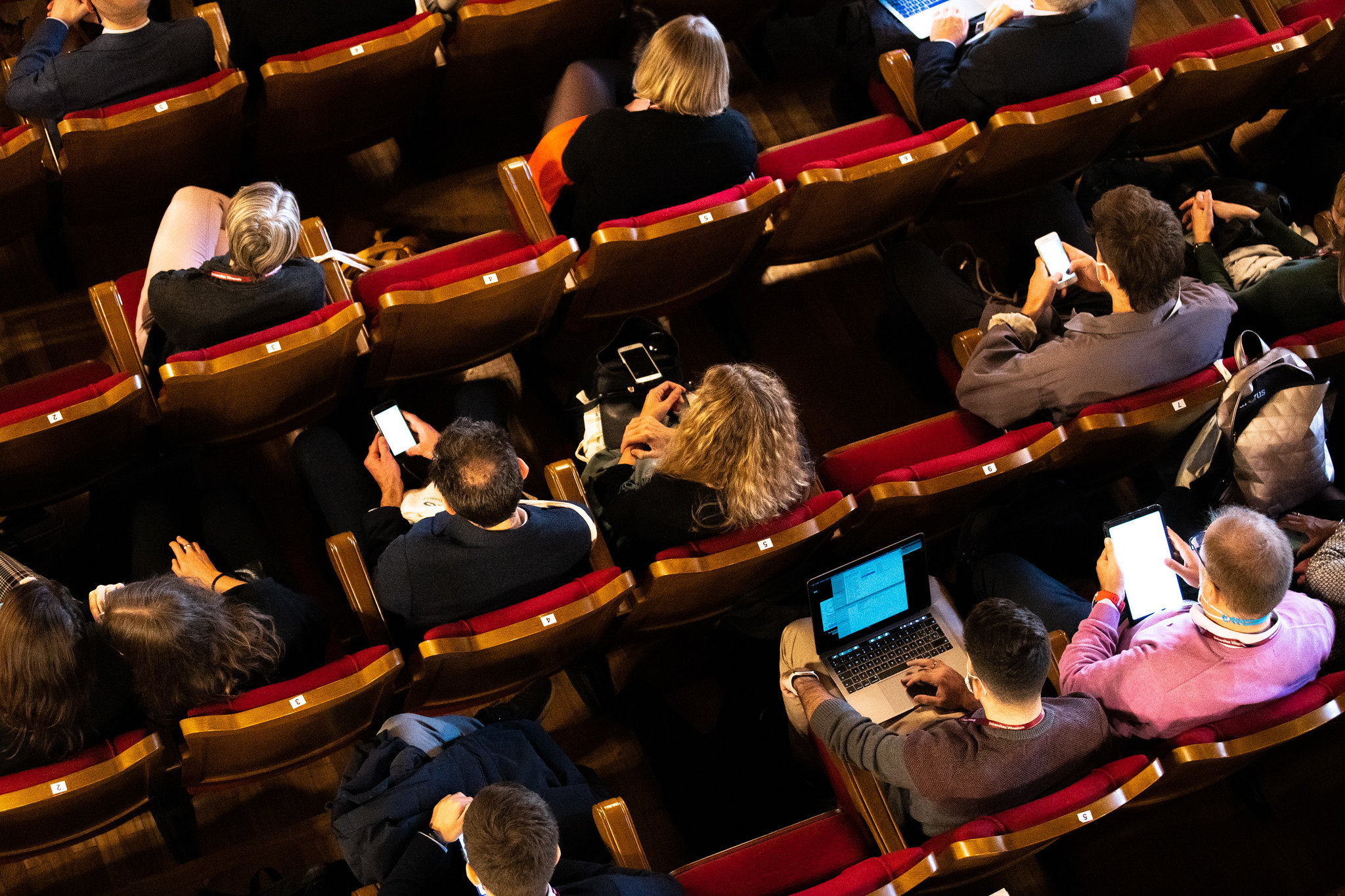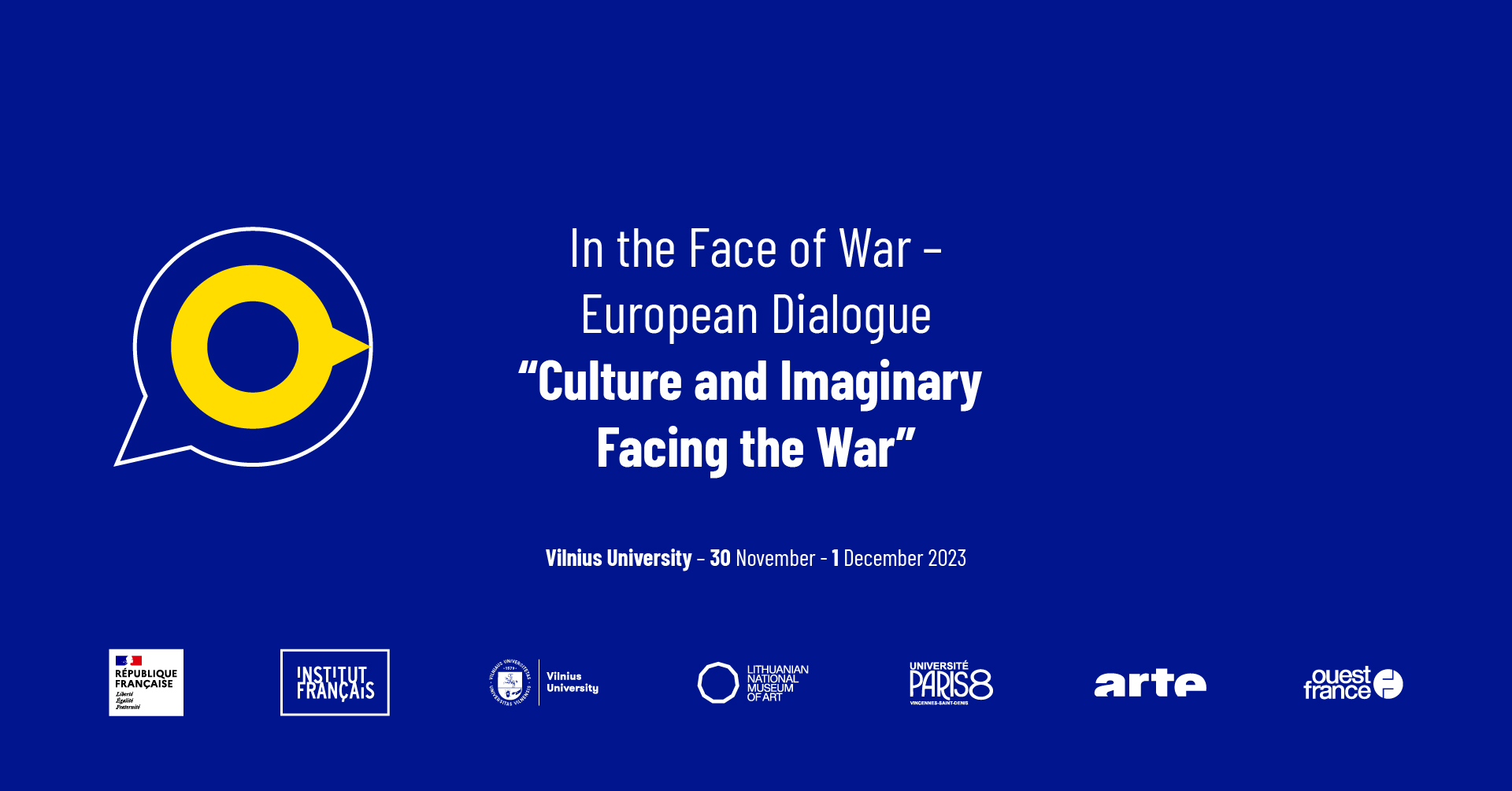International Conference in Vilnius University Invites to Discuss Culture in the Face of the War
 November 30th - December 1st, Vilnius University, together with the French Embassy and the Institut Français, is organising a conference “Culture and Imaginary Facing the War”. This event is part of the “In the Face of War – European Dialogues” lecture series.
November 30th - December 1st, Vilnius University, together with the French Embassy and the Institut Français, is organising a conference “Culture and Imaginary Facing the War”. This event is part of the “In the Face of War – European Dialogues” lecture series.
For two days, close to thirty participants representing a variety of European countries will be discussing the impact of the war through the scope of ideas and culture. What culture can do in the face of war, and how the media can describe it. The first day will focus on mental representations of European history and geography, particularly those of Central and Eastern Europe. As well as issues related to the dissemination of narratives. The second day will take the conversation further by placing emphasis on the circulation of narratives in Europe and the mobilisation of cultural players in the context of upheavals triggered by the war of aggression instigated by Russia in Ukraine.
“The events of recent years have shown how important a European agreement on common values, principles, and strategic action is. To achieve this agreement in the spirit of equality and respect, a continuous open dialogue is needed. The discussion initiated by the French Institute brings up the topic of culture in the face of war. From theoretical considerations about the changed way of thinking by the war to the practical problems of cultural institutions,” VU rector, professor Rimvydas Petrauskas commented on the idea of the event.
Europe was shaped by a multiplicity of cultural trends, schools of thought, and local and collective memories. It was built amidst major upheavals that would go on to become its historical benchmarks (the fall of the Austro-Hungarian and Ottoman Empires, World War II, the Cold War, the fall of the Berlin Wall…). Today, this past clearly continues to resonate amidst the full-scale military invasion instigated by Russia in Ukraine. Yet, what common conscience and awareness do we harbour regarding this history and the ways in which it is perceived by populations depending on where they are situated in Europe? What understanding do we have of the variety of narratives in Europe, forged by a plurality of identities? Is a new geography of memory appearing today, and extending all the way to Kyiv and the Donbas where the continent’s equilibrium is currently at stake?
Since the first day of the war, Europe has intensely mobilized to host and support Ukrainian cultural players. However, today European cultural representatives face questions about how to strengthen cultural ties when the very idea of Ukrainian cultural identity and independence is under attack. What new forms of solidarity do they need to devise? What ways of support, activities, and channels can be used for this?
The conference will conclude with a discussion on the importance of access to information and knowledge during the war, and what the media can do to enlighten the public about current upheavals, rising tensions, and the changing geopolitical balance in Europe.
The conference “Culture and Imaginary Facing the War” will take place on November 30th – December 1st at Vilnius University Theatre Hall. Registration is required. More information about the conference, speakers and the programme is here.
The conference at Vilnius University is part of a new public debate series initiated by the French Institute in Lithuania entitled “In the Face of War – European Dialogues”. The project aims to promote dialogue and debate about the upheavals in Europe caused by the war in Ukraine.
This public debate series consists of various events bringing together leading European experts from the fields of research, media, culture, and the public sphere. The project aims to compare the global issues facing the European project with the local contexts.
This new series of events was introduced in November in Prague during the 9th Prague European Summit, and the first discussion of the series will take place in Vilnius at Vilnius University. In 2024, it will be organized in five more European cities: Warsaw, Amsterdam, Sofia, Helsinki, and Rennes.
